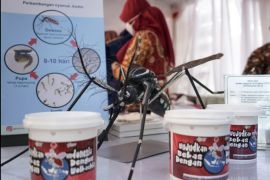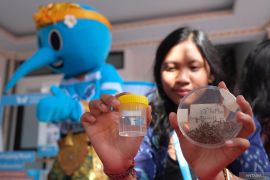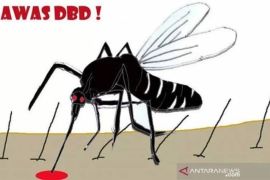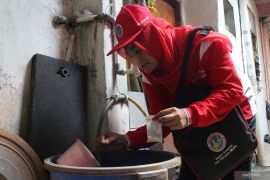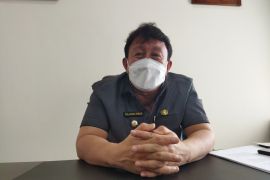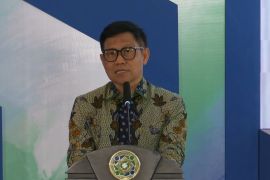The government is implementing a Wolbachia-based strategy to mitigate dengue fever.
"The ministry has implemented it and included it in the national strategy based on studies, WHO recommendations, and also benchmarks from other countries," said Maxi Rein Rondonuwu, the ministry's Director General of Disease Prevention and Control, during an online media briefing in Jakarta.
He noted that in this era of information openness, hoaxes on various issues, including health, are easily disseminated.
To this end, the Health Ministry continues to make efforts to provide accurate information, including information from experts and researchers, he added.
"This includes support from figures like Dahlan Iskan, who wrote favorably about it (Wolbachia technology). We want everyone to understand the benefits of this technology," he remarked.
Regarding divided opinions in Bali on the Wolbachia method to stem dengue spread, Rondonuwu assessed that it was caused by the dissemination of information that has not been effectively carried out, resulting in the community being inadequately informed.
"Ongoing information dissemination is essential," he stated.
He said that the Wolbachia method is a part of the government's National Strategy for Dengue Mitigation for 2021-2025.
He considers it important to implement this approach as dengue fever cases occur annually.
On the same occasion, the ministry's Director of Communicable Disease Prevention and Control, Imran Pambudi, stated that 76,449 dengue cases resulting in 571 deaths were recorded from January to November 2023.
In 2022, 143,300 dengue cases were recorded, resulting in 1,236 deaths.
Related news: Wolbachia effective in reducing dengue cases by 77%: ministry
Related news: Wolbachia bacteria only survives in insect cells: UGM's researcher
Translator: Sean Muhamad, Raka Adji
Editor: Anton Santoso
Copyright © ANTARA 2023



